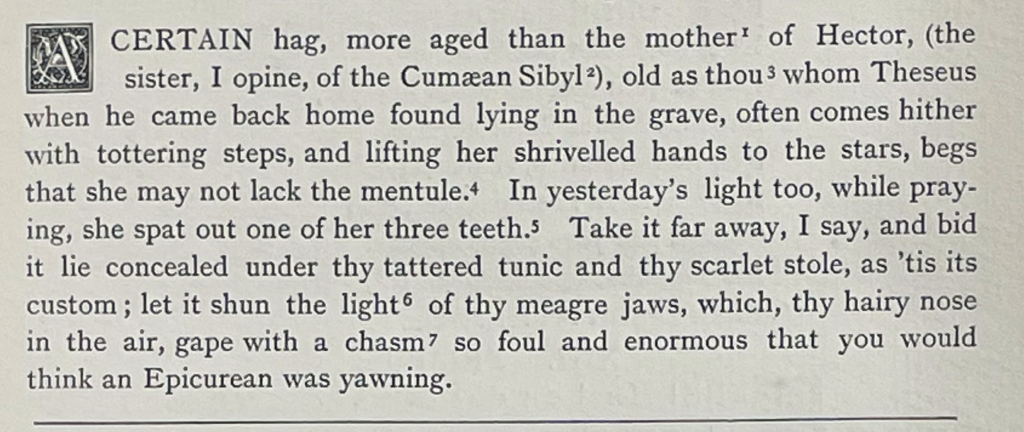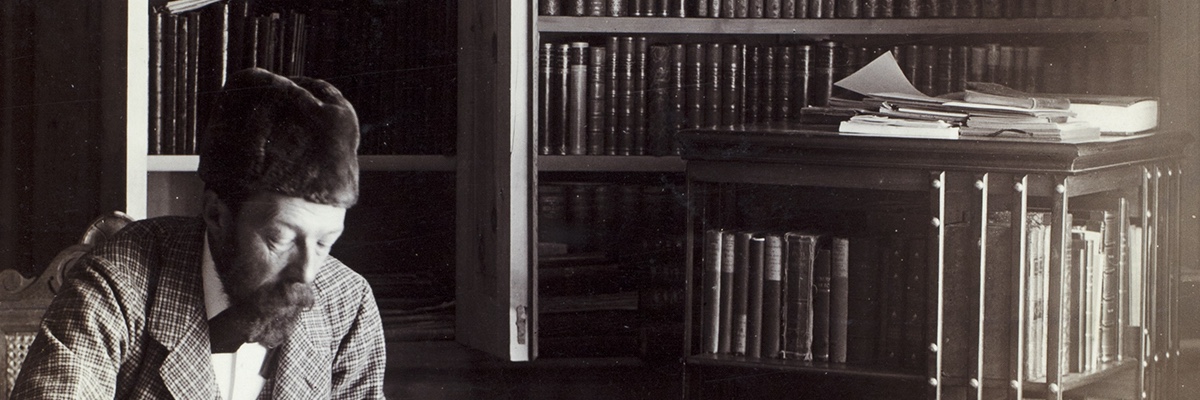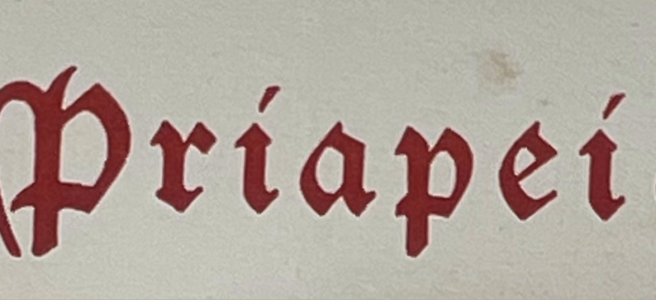Almost everyone has thought, at one point in their life, that they’ve been gifted with the art of literacy, and has wanted to rush to bring their story into the world. For some, the hardest part is actually writing the story down, in all its completeness. For others, it’s trying not to write too much, having too many plot points for any reasonable tale. However, the final hurdle is trying to get published in order to bring your book to the general public. Sure, your dad might say your book is interesting, but he’s not a publishing company.
Now imagine a world where the most difficult part of getting published wasn’t whether your book was boring, or poorly written, or simply didn’t suit the publisher’s image. Imagine the content was downright illegal. Imagine that going through the usual channels would put you in jail, so you’re forced to seek out a personal printer, fund the publishing endeavor yourself with patron donations, and publish the story under a pseudonym, even claim a fake address for your fake publishing company.
That was the case for men like John Addington Symonds and Richard Francis Burton, one trying to print the story of his life, living semi-secretly as a homosexual (importing the term in German in A Problem in Modern Ethics), the other being a little too interested in Latin erotica. Both men died before or soon after their books were published, so they couldn’t be arrested anyway. But Burton put a lot of effort into circumventing the law to get the dirty poems of the Priapeia into the hands of his friends and patrons in a fully translated book.
The Priapeia was a collection of 80 erotic Latin poems credited to the god Priapus, whose statues were placed in gardens as a protective measure against theft. He couldn’t strike a thief down with lightning, like Zeus, but he could make them his next sexual pursuit, and with his statues being inhumanly endowed, that was threat enough (as explained in poem XVI). Though the poems are in the voice of the god himself, some people believe they were likely composed by a single poet, but others think a group of people may have composed the poems. Some of these possible authors include Ovid, known for works such as Metamorphoses and Amores, and Catullus, whose many poems vacillate between ridiculous lamenting and threats of sodomy, such as in poem 16, where he threatens to have sex with two men, Aurelius and Furius, for questioning his manhood.
I will make you my boys and bone you, sexually submissive Aurelius and Furius the sodomite, who think, because my verses are voluptuous, that I am not chaste enough. For it is right that a poet be chaste himself; it is not at all necessary for his verses to be. My verses, in a word, may have a spice and charm, if they are voluptuous and not chaste enough, and because they are sexy and can arouse—I do not say boys—but this hairy pair who can’t shake their stiffies. Because you have read of many thousand kisses, do you think me less a man? I will make you my boys and bone you!
“C. Valerius Catullus, Carmina, Poem 16.” n.d. Perseus Project. Accessed April 18, 2023.
Many of these poems are obviously obscene, containing subjects such as sexual assault, unreasonably large phalluses, public indecency, and many more sexually explicit and violent behaviors. For example, poem V, where a wooden Priapus claims his inanimate status won’t stop him from chasing and catching a girl.

Another example is in poem VIII, where Priapus defends his blatant public indecency, by comparing his nether regions to Poseidon’s trident and Zeus’ thunderbolts—if they can have their weapons out why can’t he?


Unfortunately, it doesn’t end there, he proceeds to threaten yet another person with sodomy in poem X, this time claiming to have 12 impractical inches to his name.

Others are slightly more “censored,” less like pornographic poems and more like dirty jokes, such as Priapus complaining about thieves being kept from his garden, and thus his retribution in poem XVI.

Similarly, he brags about his endowment in poem XVII.

Finally there is the example of a poor thief lamenting his punishment over stealing a cabbage in poem XXXIII.

Among these poems there are even stranger subjects that can only be loosely tied to the overall theme, such as the begging of an old woman in XI:

What does it mean that these ancient poems of unclear authorship, ranging from pornographic to humorous, found new life in a London printing press centuries later? Even more, what does it mean that a man like Burton went to the most extreme of lengths to get these ancient dirty jokes to his friends, even if he’d passed away by the time they were distributed? At the very least, both Ancient roman and Victorian British men enjoyed being vulgar in the safety of ink and paper (papyrus).
Even more than that, why would someone have to sneak around in the shadows to get their Latin erotica printed? Especially one that didn’t even include pictures? That answer lies in 19th century Britain, a country swamped in unhealthy levels of sexual repression. From about 1820 to 1900, Britain was in its Victorian phase, where the upper class turned their noses up to such things as “pornography” and “sexual intimacy,” but everyone was secretly really interested. Women were expected to be innocent, doe-eyed creatures who’d never even heard of intercourse, yet men were expected to be experienced, the classic double standard that not only still exists today, but also continues to create strife among men and women. So you’re presented with a newly bolstered middle class, hailing themselves as morally upright citizens, while someone’s brother has a copy of the Priapeia hidden away in their bookcase.
Burton specifically was a man who took Victorian Britain’s prudishness as a personal challenge, venturing out into the world to not only experience what he thought was a healthier relationship with sex, but also going out of his way to translate erotica and bring it from the Mediterranean to Britain’s scandalized shores.
Bibliography
Brodie, Fawn McKay. 1967. The Devil Drives; a Life of Sir Richard Burton. New York: W. W. Norton.
Elomaa, Heather Elaine. n.d. “The Poetics of the ‘Carmina Priapea.’”http://archive.org/details/devildriveslifeo0000brod.
Fuente, Ariel de la. 2018. “Sir Richard Burton’s Orientalist Erotica: The Thousand Nights and a Night and The Perfumed Garden.” In Borges, Desire, and Sex, 84–108. Liverpool University Press. https://doi.org/10.2307/j.ctvhn09p9.9.
Kenney, E. J. 1963. “Corpvs Non Ita Vile.” Edited by Vinzenz Buchheit. The Classical Review 13 (1): 72–74.
Priapeia Or the Sportive Epigrams of Divers Poets On Priapus: the Latin Text Now for the First Time Englished In Verse and Prose (the Metrical Version by “outidanos”) with Introduction, Notes Explanatory and Illustrative, and Excursus by “neaniskos.”. Cosmopoli: Printed by the Translators … for Private Subscribers Only, 1890. (physical copy consulted from the Johns Hopkins special collections of Sheriden Libraries)
Priapeia, or the Sportive epigrams of divers poets on Priapus: the Latin text now for the first time Englished in verse and prose-the metrical version by “Outidanos” [i.e. Sir Richard F. Burton]-with introduction, notes explanatory and illustrative, and excursus, by “Neaniskcs” [i.e. Leonard C. Smithers]. [The prose versions also by L. C. Smithers.]. N.p., 1890. Archives of Sexuality and Gender, link.gale.com/apps/doc/IKYEAF496689898/AHSI?u=balt85423&sid=gale_marc&xid=243378e5&pg=57. Accessed 18 Apr. 2023.
Robert Needham Cust. 1895. Linguistic and Oriental Essays Written from the Year 1870 to 1901. Trübner & Company. http://archive.org/details/bub_gb_RhYYAAAAYAAJ.

